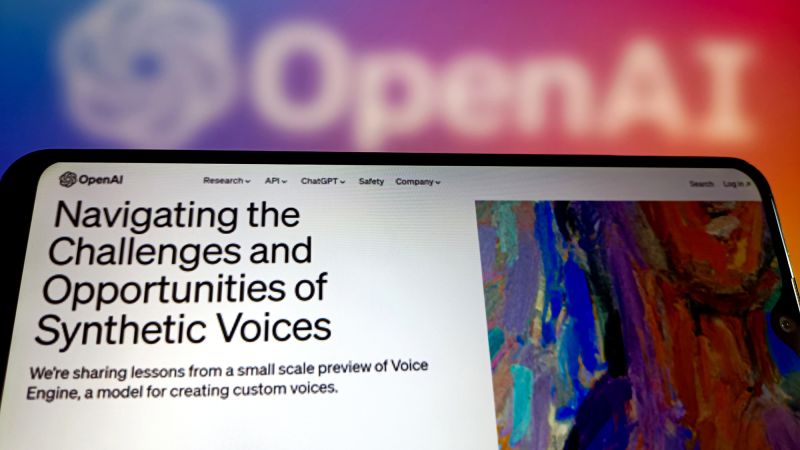OpenAI has introduced its latest generative artificial intelligence tool called Voice Engine, which can mimic real human voices based on a 15-second sample of someone speaking. Users can provide a paragraph of text and the tool will read it in the AI-generated voice. While there are other AI-generated voice services available, OpenAI has a history of creating widely adopted AI tools, like ChatGPT.
The AI-enabled text-to-voice tool has various potential applications such as translation, reading assistance, and aiding those who have lost their ability to speak. However, skeptics are concerned that this technology could contribute to disinformation or make scams easier to perpetrate. OpenAI is currently testing Voice Engine with a select group of partners in education and health technology companies to determine how and whether to allow more widespread use. Testers must have explicit consent to replicate voices and must clearly identify when voices are AI-generated.
OpenAI recognizes the serious risks associated with generating speech that resembles people’s voices, especially in an election year. The company plans major changes as AI-generated audio becomes more widely available, including phasing out voice-based authentication for bank accounts. OpenAI suggests that any broad deployment of synthetic voice technology should include voice authentication experiences to verify the original speaker and prevent the creation of voices too similar to prominent figures.
Voice Engine is designed to use a voice sample in one language to create a replica voice that can speak in multiple other languages. OpenAI has provided examples of AI-generated audio clips of a human reading a passage about friendship in various languages, maintaining the tone and accent of the original speaker. Users are also anticipating the public release of Sora, an AI-generated video tool from OpenAI that can create realistic 60-second videos from text instructions, with scenes featuring multiple characters and detailed background settings.
As OpenAI continues to develop advanced AI tools like Voice Engine and Sora, it is crucial to address the ethical concerns and risks associated with synthetic voice technology. The company emphasizes the importance of securing consent from individuals whose voices are replicated and the need for clear identification of AI-generated content. Despite the potential benefits of these tools, precautions must be taken to prevent misuse and ensure responsible deployment in various applications.


